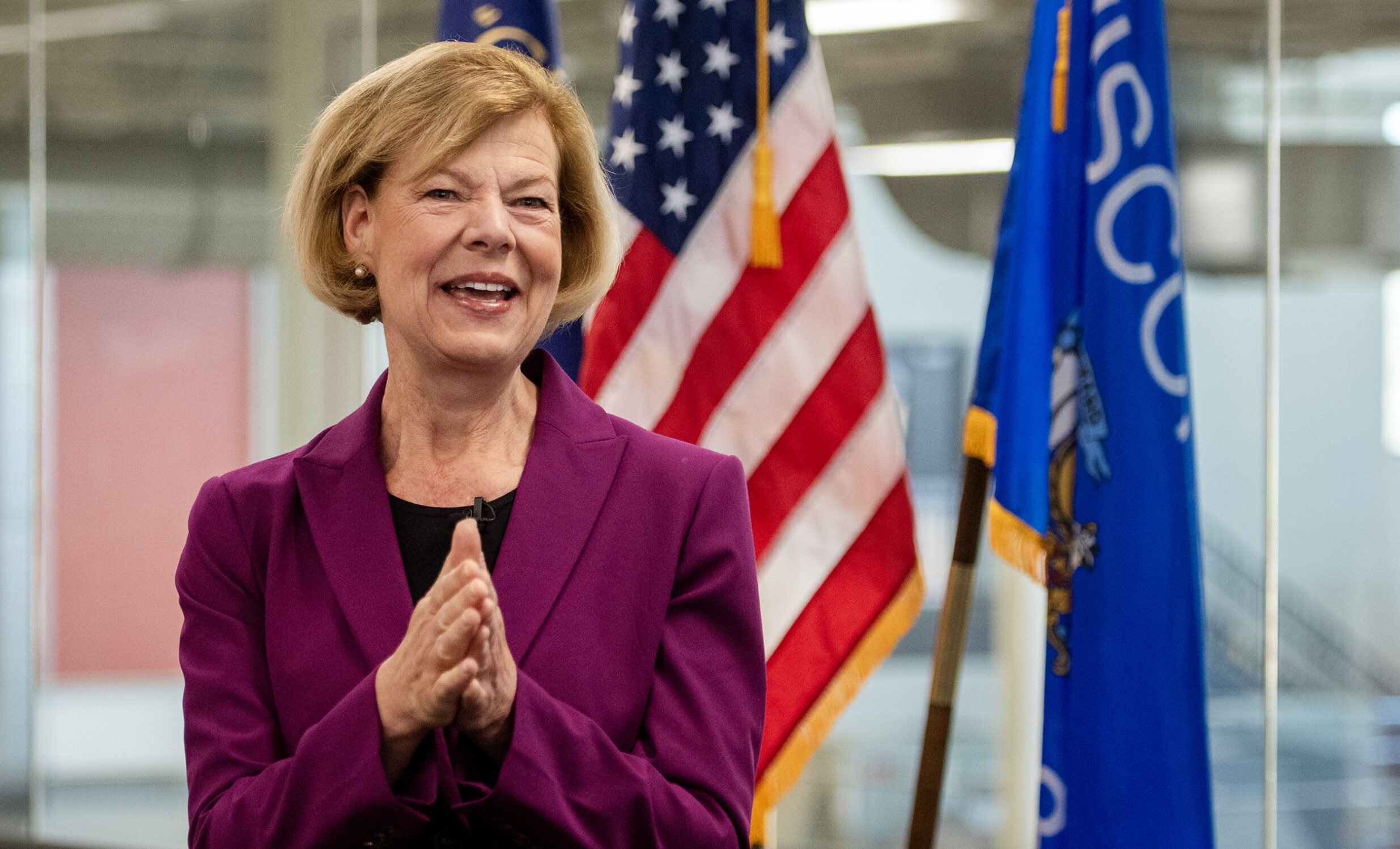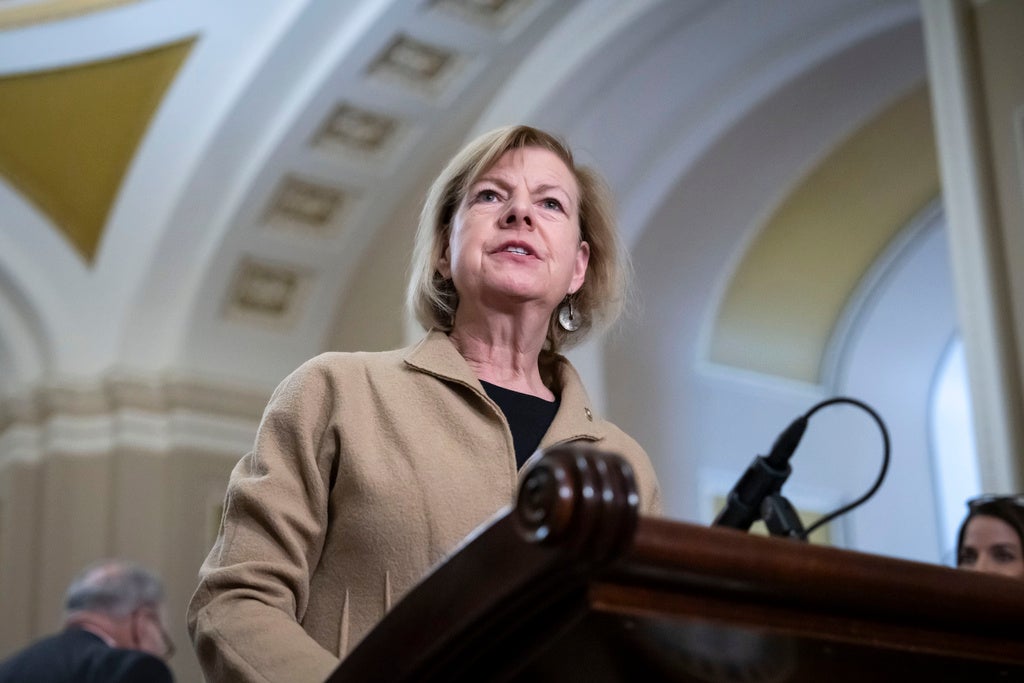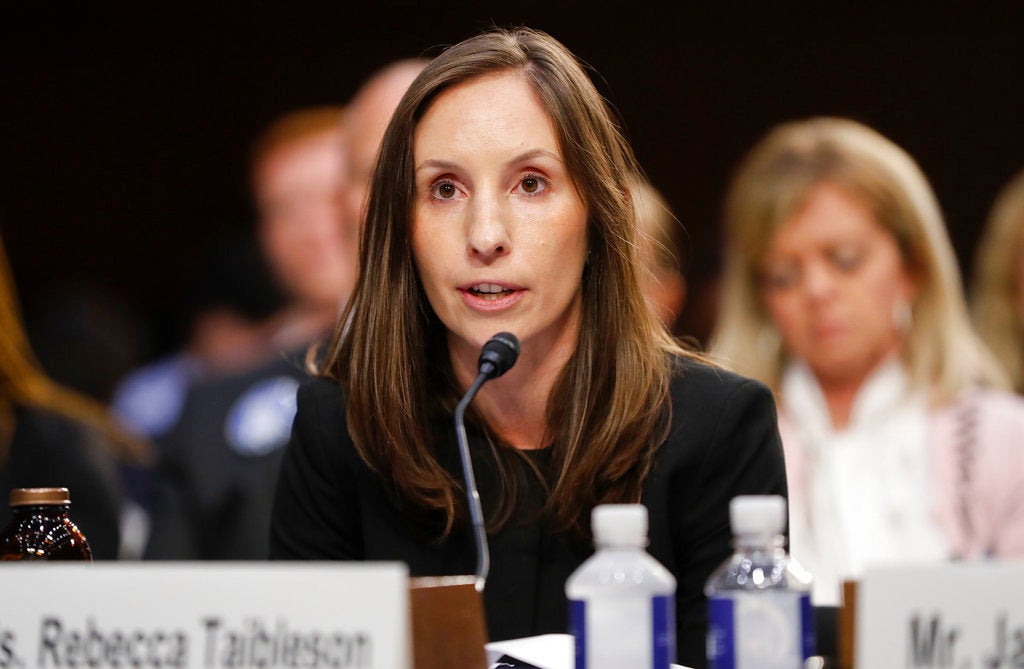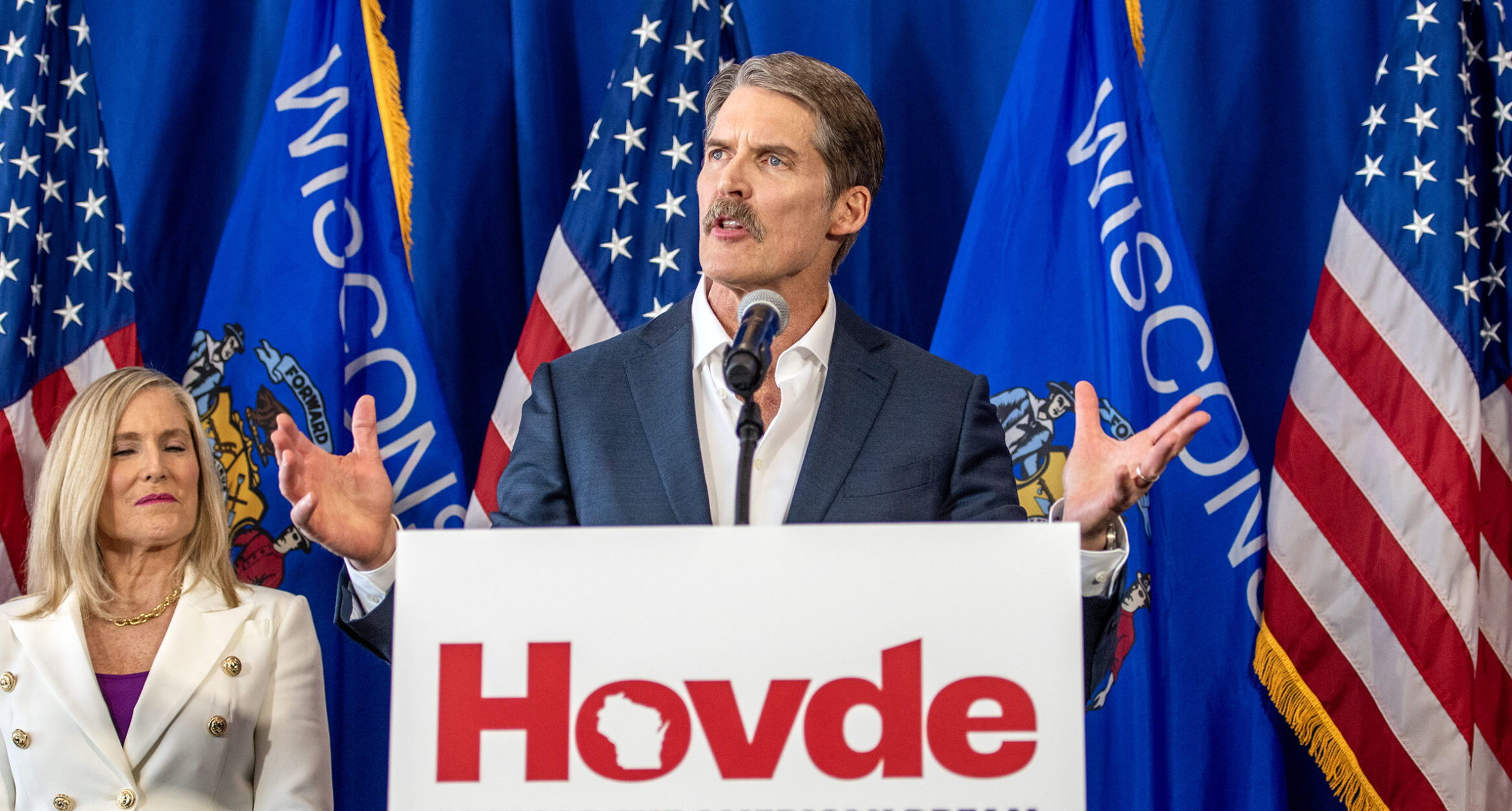Democrat Tammy Baldwin has defeated Republican challenger Eric Hovde to narrowly clinch her third term in the U.S. Senate, following a pricey — and at turns nasty — campaign that attracted national attention and tens of millions in outside spending.
The Associated Press called the race for Baldwin at 12:42 p.m Wednesday. All results are unofficial until they’re certified in coming weeks.
With 99 percent of the precincts reported, Baldwin led Hovde by a margin of 0.9 percent of the vote.
News with a little more humanity
WPR’s “Wisconsin Today” newsletter keeps you connected to the state you love without feeling overwhelmed. No paywall. No agenda. No corporate filter.
That’s close enough for Hovde to ask for a recount, a possibility which Wisconsin GOP leadership didn’t rule out Wednesday morning.
Her win wasn’t enough to stave off a change of control of the U.S. Senate, which flipped to Republican control late Tuesday night.
And it was a shockingly close outcome for Baldwin, who has not lost a race in her nearly four-decade political career, and has been viewed as an outlier in Democratic politics for outperforming members of her own party in areas of the state that have swung rightwards in recent years.
The win, by a preliminary margin of about 29,000 votes, is a whisker compared to her previous elections. In 2012, she defeated former Gov. Tommy Thompson by about 5.5 percentage points. In 2018, she defeated former state Sen. Leah Vukmir by nearly 11 points.

This year’s closer race reflects the high stakes of the contest, where Republicans unified in advance of the primary to avoid early skirmishes that could weaken them before the general election — a pitfall that contributed to Baldwin’s landslide victory in 2018.
Both camps received enormous amounts of money, with Baldwin outraising and outspending Hovde. According to the most recent data from the Federal Elections Commission, Baldwin had raised about $47.6 million over the duration of the campaign cycle. Hovde, a bank magnate, raised $7.6 million. But he loaned another $20 million to himself.

Outside money poured into the race. According to a running tally by the group Open Secrets, Hovde was the beneficiary of about $60 million in outside spending while another $60 million was spent on Baldwin’s behalf. The vast majority of that money paid for attack ads, which blanketed Wisconsin for months.
Hovde also benefitted from close ties to former President Donald Trump, who endorsed him and shared the stage with him during frequent visits to Wisconsin during the year. He ran on promises to improve the economy as an outsider businessman, while Baldwin held up her record in Washington on issues like healthcare, LGBTQ+ rights and agricultural investment.
Throughout the year, Baldwin’s team also trolled Hovde for owning a large home in California. Although he was born and raised in Wisconsin, and his family name remains on a downtown Madison building, Baldwin and her allies sough to paint him as an out-of-touch carpetbagger.
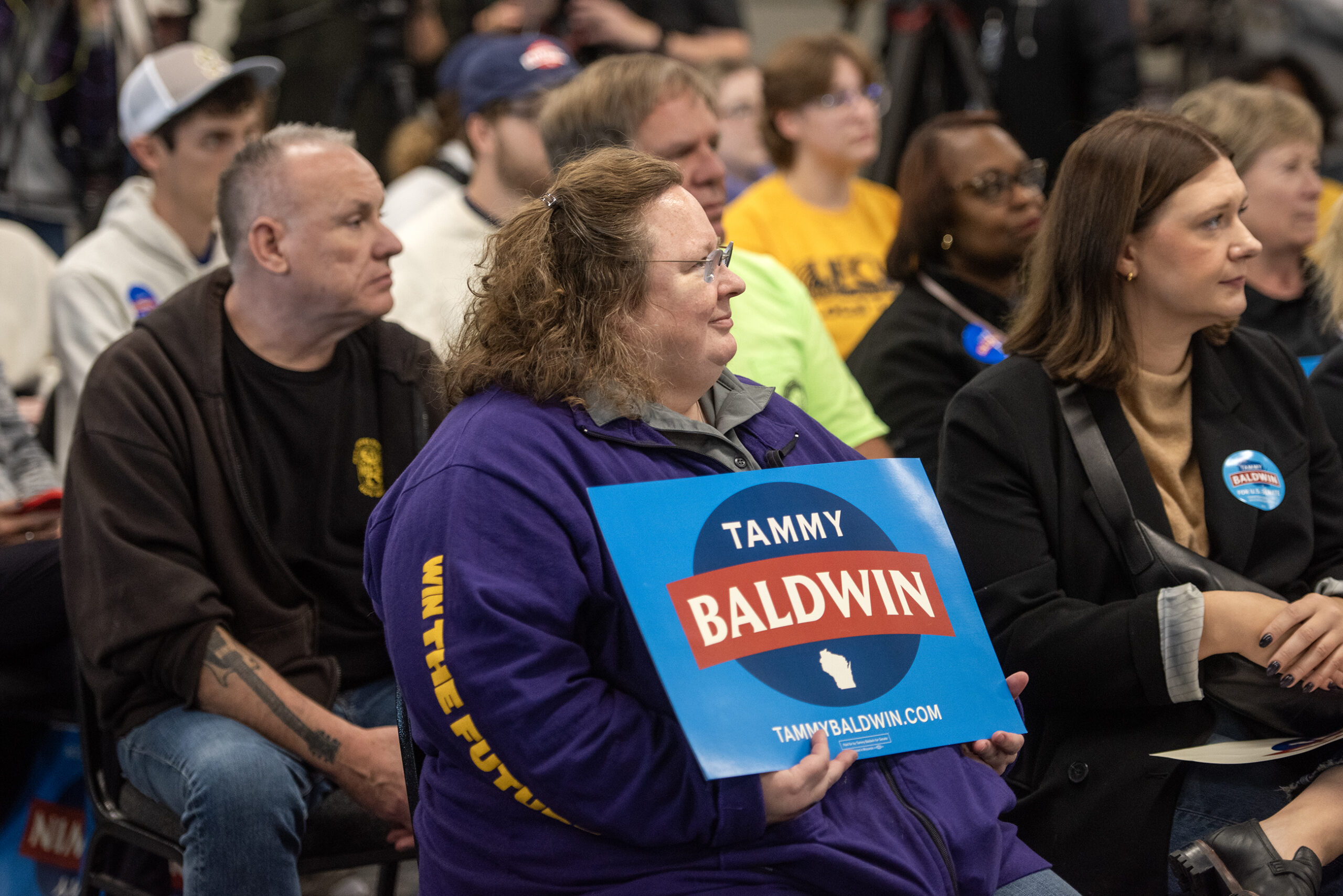
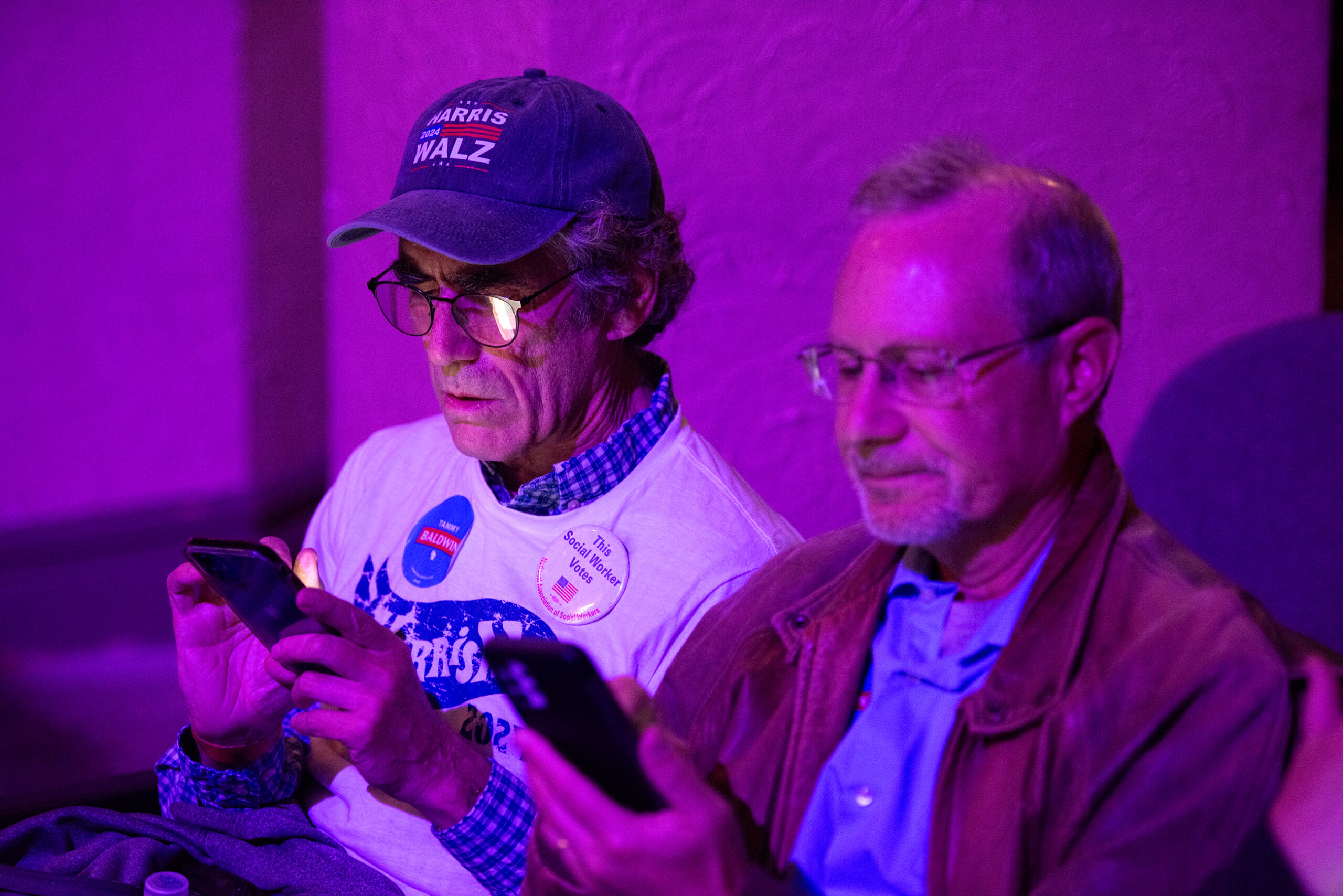
In the final weeks of the campaign, the tone of the debate turned nasty as anti-Baldwin ads attacked her position on transgender health care, using misleading claims about her record and implying support for violent criminals including the Boston marathon bomber. Baldwin’s closing arguments in her final ad attacked Hovde for comments he’d made over the past 12 years, when he said most nursing home residents are “not at a point to vote.“
In the end, Baldwin carried the day, earning a third term in the U.S. Senate representing Wisconsin. Baldwin, 62, won’t be up for reelection again until 2030.
Her victory preserve’s the state’s bipartisan split in the chamber, with Republican U.S. Sen. Ron Johnson already serving his third term and not up for reelection until 2028.
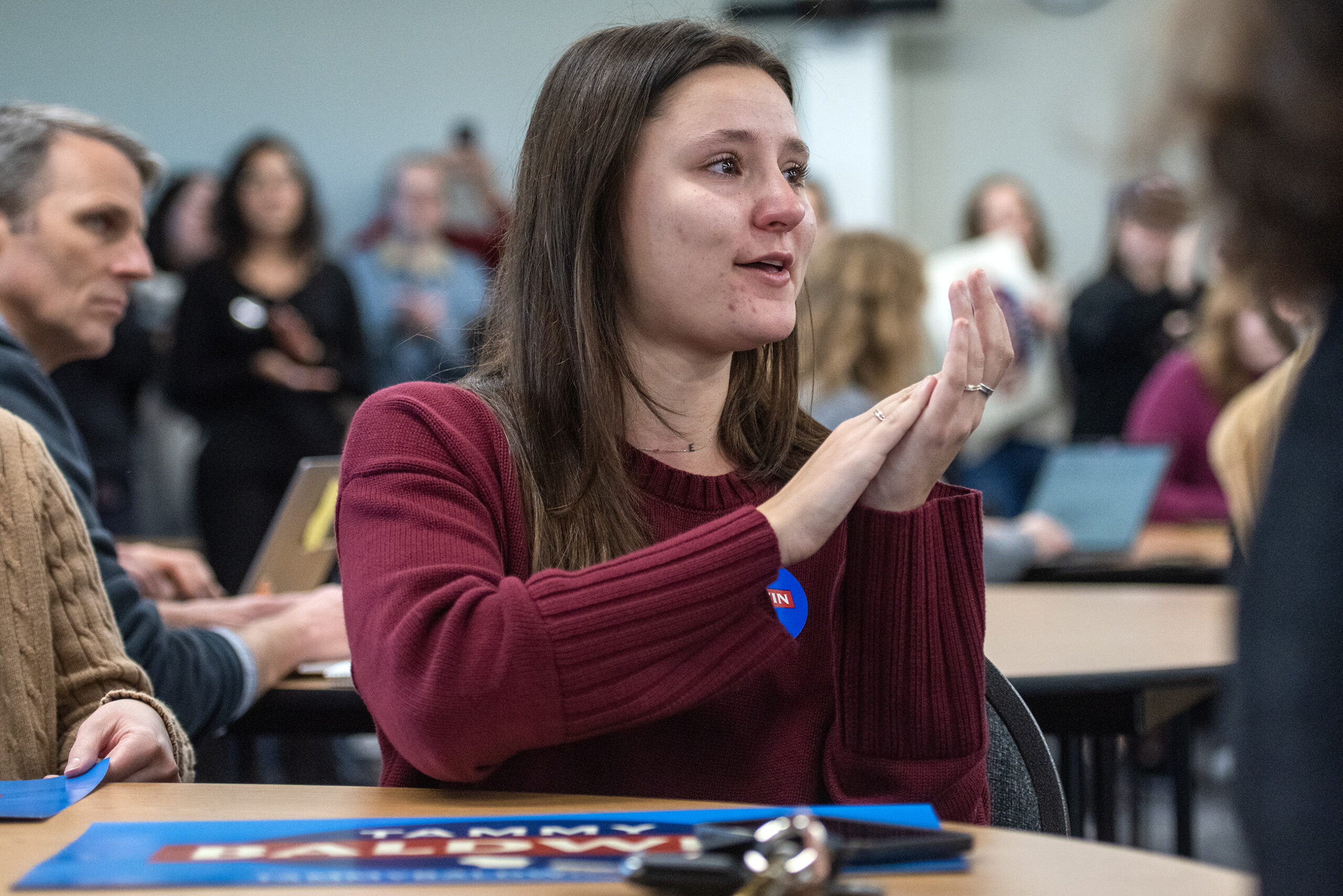
Wisconsin Public Radio, © Copyright 2025, Board of Regents of the University of Wisconsin System and Wisconsin Educational Communications Board.

